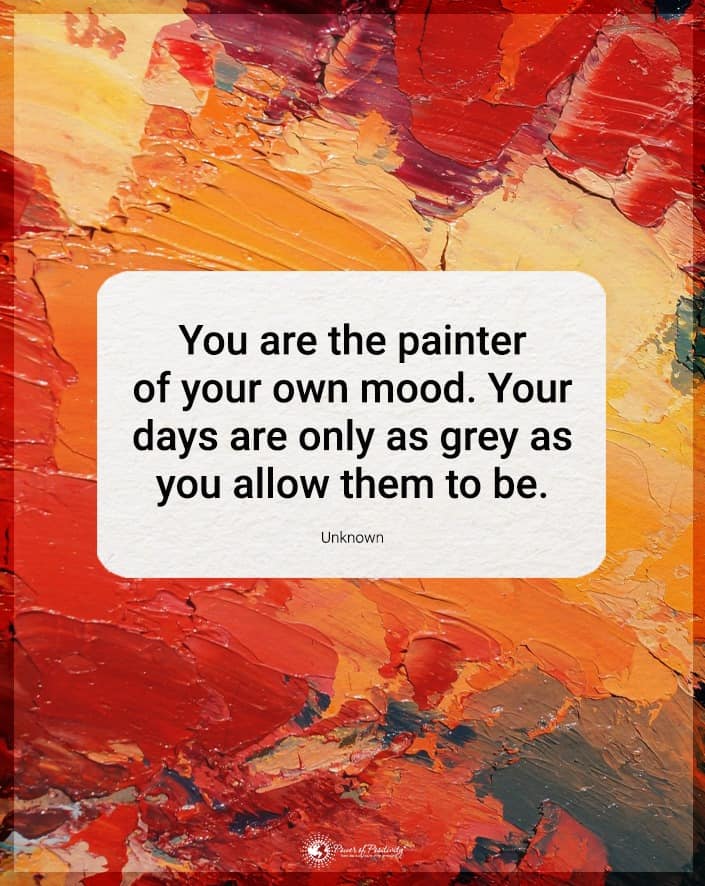When you feel emotional or need to vent, you don’t always want to share your private thoughts with those around you. Keeping a mood journal is an ideal way to express your feelings in writing. You may be surprised at how it may help your overall well-being.
Ever since language development, humans have shared their lives, experiences, and traditions in oral histories. These stories were passed on through generations. When writing was discovered, folks began putting things on paper to preserve the legacy of their civilization.
Thanks to wise and creative people throughout history, we get a glimpse of the events and thought processes in the past. Historians have gleaned valuable information from diaries that were preserved. If Samuel Pepys hadn’t kept his iconic diary, we might not have known as much about the Black Plague in Europe as we do.
The reflections of countless other people, both famous and familiar, have provided a chain of human history. Of course, your journey may not prove to be historically relevant to society that’s centuries into the future.
How Can Mood Journaling Benefit You?
Journals and diaries are as varied as the people who keep them. Some folks enjoy keeping entries of their daily activities. You can also keep a journal that chronicles your travels and other interests. Other people keep a record of milestones in life, such as school years, college, marriage, and births.
Mood journals can be a combination of all these types. The only difference is that you can weave more of your thoughts and feelings into it. The only rule for journaling is that there are no rules. Your diary is a visual extension of your mind and spirit, and you can create it however you please.
Recording your memories, thoughts, and feelings needn’t be a difficult chore. It’s much more than the dreaded school essay on what you did over the summer. Keep reading to discover ten ways that keeping a mood journal can help minimize negative energy with positivity.
 1. Lower Your Stress Levels
1. Lower Your Stress Levels
The evolution of humans includes a hard-wired survival mode. When you are confronted with a threat, real or perceived, your brain goes into autopilot. It signals your body to dump hormones like adrenaline and cortisone into your bloodstream. They boost your body’s strength to survive by fighting, running, freezing, or fainting.
Whenever you are stressed, your brain reacts accordingly. These stress hormones are only meant for temporary life-sustaining events. However, chronic stress overwhelms your body with these hormones and can be detrimental to your health, says an article published by National Institute of Health.
Do you want to lift your spirits and possibly lower your risks for certain diseases? Reducing your stress levels is a good start. When you keep a mood journal and document your feelings, it can help relieve tension and undue stress.
2. Boost Your Creative Potential
Whether you realize it or not, everybody has a bit of creativity in their genes. It’s just more pronounced in some people. What better way to have a creative outlet than journaling? Since you make the rules, the creativity you express in your mood journal is limitless.
Here’s a chance for you to channel your inner writer or artist. Feel free to compose poetry or stories. Draw pictures or cut ones out of magazines that add color and fun to your journal. Add quotes or anything that gives you joy as you write your life’s story.
3. Express Your Thoughts More Effectively
Perhaps you are one of the plethora of people who are better at writing their feelings. It’s especially true when you are coping with subjects that are hurtful or make you uncomfortable. Your mood journal is an outlet to express your emotions and thoughts as they come to you.
As you get used to writing your thoughts, you’ll find it easier to express them more effectively. Maybe your journal will be a springboard for learning how to speak up for yourself. The more open you are with your journaling, the more confidence you can have in speaking.
4. Help You Achieve Your Goals
Consider the classic analogy of life being a journey. If you haven’t decided on a destination, how are you going to get there? Will you know if you’ve arrived or not?
Setting goals is your way of choosing your destination. It’s up to you to plan the steps required to achieve your dreams. Think of these steps as a roadmap.
Now, let your journal help you define your goals and break them into smaller achievable steps. As you make decisions about your life, refer to your goals. Are your choices bringing you closer or farther from your best life?
5. Build Your Self-Confidence
Although toxic people can do much to break your spirit and make you think you are nothing, the choice is yours. You have the power to create confidence in your character, skills, and abilities. Nobody can rob you of that power unless you willingly give it to them.
When you’re writing in your mood journal, consider making a list of your attributes and all your achievements. Be honest and compassionate and see yourself for the beautiful person you are. You’ll soon discover that you’ve been worthy and more than enough all along.
 6. Gain a Broader Perspective
6. Gain a Broader Perspective
Sometimes, you get stuck between the four walls of your mind and can’t see beyond them. It’s often difficult to see solutions to your problems when you’re too close to the situation.
Keeping your thoughts and observations in a journal is an excellent way to brainstorm. As you review past entries, perhaps you’ll get a better perspective of how to manage your life. Solutions to your problems can be evident with a bit of soul-searching.
7. Charts Your Emotional and Spiritual Growth
The purpose of charts and graphs is to present a visual aid for progress or digression. When you think of your life as brain waves, you’ll see that it’s all ups and downs. The only time the line is flat is when you’re deceased.
Everyone has these mountains and valleys, and it’s part of learning and growing. Your journal work can help you discover how you are maturing emotionally and spiritually. When you’re discouraged, you can read about some of your past victories.
8. Builds Self-Discipline
Anything you want to achieve in life requires self-discipline. Nobody can force you into wanting to be a better person or to do more with your life. Those choices are in your hands.
Remember that you have no set rules for how or when to journal. However, you can decide how often to write, and it makes you responsible for yourself. When you define your goals in your writings, it gives you the urge to continue on the right path.
9. Gives You an Emotional Outlet
According to an article published by News in Health, your physical health is linked to your mental well-being. If you keep your emotions bottled up, they are bound to cause you physical, emotional, and spiritual issues.
If you don’t feel like talking about a problem, it might be easier to share it in a journal. You can rant, rave, and say whatever is on your mind. Use this venue to pour out all the hurts and disappointments you have. You needn’t share it with anyone unless you want to.
Many people find relief after they’ve given voice to their deepest emotions. Take a deep breath and revisit your emotional entries later. Can you see your problems from a fresh perspective, and are you open to healing?
Emotions were meant to be expressed and not stored in your mind’s cellar. As you explore your feelings and thoughts, you may see changes you need to make. If you can’t change a situation, then recording your emotions may help you be more accepting.
10. Develop Your Intuition
Have you ever heard the admonition to trust your gut feelings? In most cases, your inner voice is correct. Have you ever met someone attractive, kind, and intelligent, but you had a feeling that you weren’t right for each other?
Another benefit of journaling is to help develop your intuition. Don’t second guess yourself as you record your feelings and thoughts about people or situations. You may see how your inner voice was right, and you dodged a complicated issue.
Of course, we are all guilty of being too cautious, and maybe you judged a person or issue prematurely. Keeping a journal can help you decide if that was the case. However, learning to listen to your inner voice is a habit you won’t regret.
 Final Thoughts on Keeping a Mood Journal
Final Thoughts on Keeping a Mood Journal
Whether you keep your notes in a binder or on a thumb drive, a mood journal offers many benefits. You learn more about yourself and can better express how you feel. Not only will this be helpful to you personally, but it may help dispel negative energy in your relationships.


















